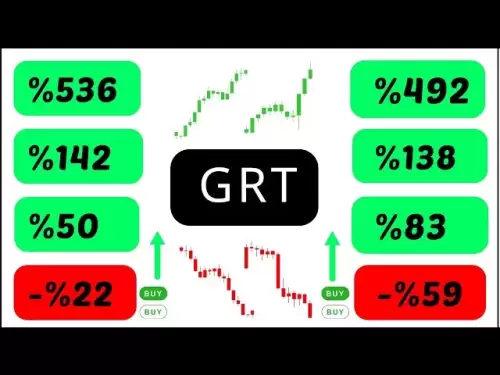Analyzing the impact of Bitcoin ETFs, corporate treasuries, and geopolitical events on BTC, as highlighted in the K33 Report.

Bitcoin ETFs and the K33 Report: Decoding Market Trends
So, what's shaking in the world of Bitcoin, ETFs, and the K33 Report? Let's dive into how these elements are shaping the crypto landscape, especially with ETFs taking center stage.
ETFs vs. Corporate Treasuries: Who's Moving the Market?
According to the latest K33 Report, spot Bitcoin ETF flows are still the dominant force in Bitcoin's price movements. Vetle Lunde, Head of Research at K33, points out a strong correlation between ETF inflows and BTC returns. Over the past month, ETFs added 13,000 BTC, mirroring recent price action. ETF flows explain a whopping 80% of price variance. That's a serious impact.
Corporate Bitcoin acquisitions, while generating buzz, haven't shown the same consistent impact. Many new entrants rely on in-kind share swaps, which Lunde argues generate little to no net market demand. So, while companies like MicroStrategy keep buying Bitcoin directly, the ETF influence remains king.
Geopolitical Tensions and Market Volatility
Geopolitical tensions? They're rattling the derivatives markets. Remember when Bitcoin dipped last week amid U.S.–Iran conflict fears? Traders de-risked, leading to the largest one-day drop in BTC perpetual futures open interest since August 2024. Open interest in perps has fallen, indicating market caution. Upcoming events, like Trump’s budget bill, could keep Bitcoin volatility high. Buckle up!
Bitcoin Exchange Flows Hit Decade Lows
Adding another layer to the story, Bitcoin's flows on centralized crypto exchanges have plunged to the lowest point in ten years. Axel Adler Jr. notes that daily outflows and inflows have dipped to only 40,000 BTC. Historically, such decreased flows have led to periods of reduced market participation or price rallies. So, this could pave the way for a massive market movement, especially with institutions getting more involved.
The ETF Effect: A Game Changer?
The SEC's approval of spot Bitcoin ETFs in January 2024 was a pivotal moment. It legitimized Bitcoin ETFs, attracting institutional investors who were previously on the fence. The introduction of options trading for Bitcoin ETFs, like BlackRock’s IBIT, has the potential to increase liquidity and stabilize Bitcoin’s price volatility. Options trading enhances liquidity, potentially reducing Bitcoin’s price swings. It's a sign of market maturation, folks!
ARK Invest's Strategic Moves
ARK Invest, led by Cathie Wood, has been strategically adjusting its crypto portfolio. The firm has reduced its holdings in Grayscale Bitcoin Trust (GBTC) while increasing exposure to other assets, including Jack Dorsey’s Block. This shift aligns with broader trends favoring spot ETFs over trust-based products.
Final Thoughts
So, what's the takeaway? Bitcoin ETFs are a major force, geopolitical tensions add volatility, and exchange flows are at decade lows. It's a wild ride, but as the market matures, these ETFs are poised to play a significant role. Keep an eye on those ETF flows and maybe grab some popcorn – it’s gonna be interesting!




















































































